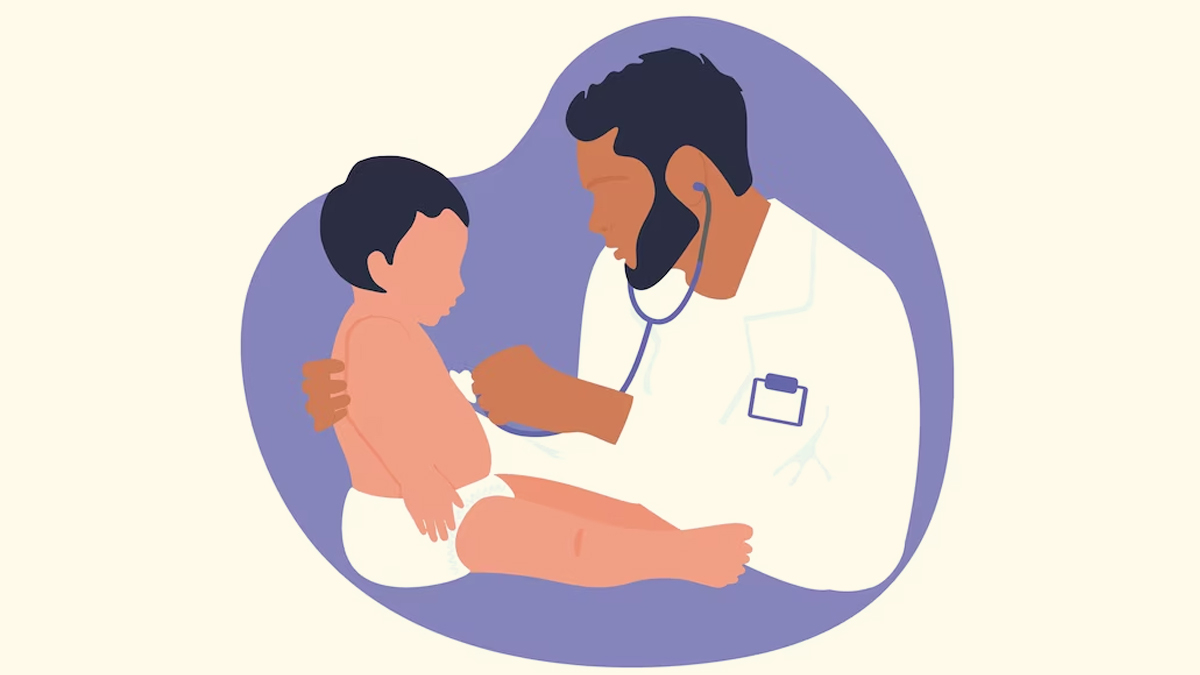
Newborn screening is a vital process that helps identify rare but serious medical conditions in infants shortly after birth. The sample collection procedure is non-invasive and involves a few drops of blood from newborns between 48-72 hours of birth. Blood testing can provide early detection and intervention for potential defects and disabilities (both mental and physical) and sometimes life-threatening conditions. By detecting these diseases early, healthcare professionals can initiate timely & immediate treatments, improving outcomes, offering healthy life to babies, and bringing down anxiety in affected families. In this article, two experts share their insights about the topic and importance of newborn screening.
Dr Shuchin Bajaj, Founder- Director, Ujala Cygnus Group of Hospitals asserts newborn screening as a powerful tool that has revolutionized the early detection of rare diseases in newborns, offering a ray of hope to families worldwide. By identifying these conditions shortly after birth, doctors can initiate prompt interventions and provide hope for affected families.
Newborn screening programs have expanded significantly over the years, thanks to advancements in medical technology and increased awareness, shares Ms. Chandra Ganjoo, Group Chief Executive Officer, Trivitron Healthcare. These tests primarily target genetic, metabolic, and hormonal disorders that may not exhibit visible symptoms at birth. Through systematic testing, healthcare providers can identify rare diseases such as phenylketonuria, cystic fibrosis, sickle cell anemia, congenital hypothyroidism, and many others that might otherwise go undetected until symptoms emerge. Once the symptom appears, the conditions cannot be reversed.
The following are the importance of newborn screening, the diseases it can detect, and the positive impact it has on the lives of newborns and their families:-
A- Early Detection for Better Outcomes:- Newborn screening involves testing infants for a variety of genetic, metabolic, and congenital disorders. These conditions may not be apparent at birth, but if left undetected and untreated, they can lead to severe health complications and even death. By screening newborns shortly after birth, doctors can identify these diseases early on, allowing for timely medical interventions that can significantly improve outcomes.
Also Read: How Newborn Screening Tests in India Can Reduce Infant Mortality Rate

B- Preventing Health Complications:- One of the key benefits of newborn screening is its ability to prevent or minimize health complications associated with rare diseases. Early intervention can significantly improve the outcomes for infants affected by these conditions. By identifying rare diseases at the earliest stages, doctors can swiftly implement treatments, dietary modifications, or medications that can prevent irreversible damage to vital organs or developmental delays.
C- Supporting Families and Enhancing Quality of Life:- Newborn screening not only offers medical benefits but also provides emotional support to families. The early diagnosis of a rare disease can be overwhelming for parents, and newborn screening programs often include genetic counseling to help families understand the condition and its implications. This support helps families navigate through the complexities of the diagnosed rare disease, providing them with guidance, resources, and access to support networks.
Why newborn screening is important

Also Read: Nutrition For Newborns: A New Parent's Guide For The First 6 To 12 Months
Early Identification, Intervention, and Improvement
The primary objective of newborn screening is the identification of early or late-onset disorders, timely intervention, and treatment, which prevent severe long-term disabilities and premature death. Initiation of treatment helps the baby to live a healthy life. Providing families with information and support, newborn screening tests, and solutions by Trivitron Healthcare, a leading provider of newborn screening products, allows them to understand their child's health better and make informed decisions regarding their care.
Newborn screening, through its continued efforts and collaboration, has the potential to bring about transformative changes in the lives of families affected by rare diseases. This essential public health program aims to identify infants with certain conditions shortly after birth, allowing for early intervention and treatment. By screening newborns for a range of genetic, metabolic, and endocrine disorders, newborn screening provides families with hope, support, and the opportunity for a brighter future.







